Stakeholders Call for Enhanced Action to End Gender-Based Violence in Tanzania
Date:
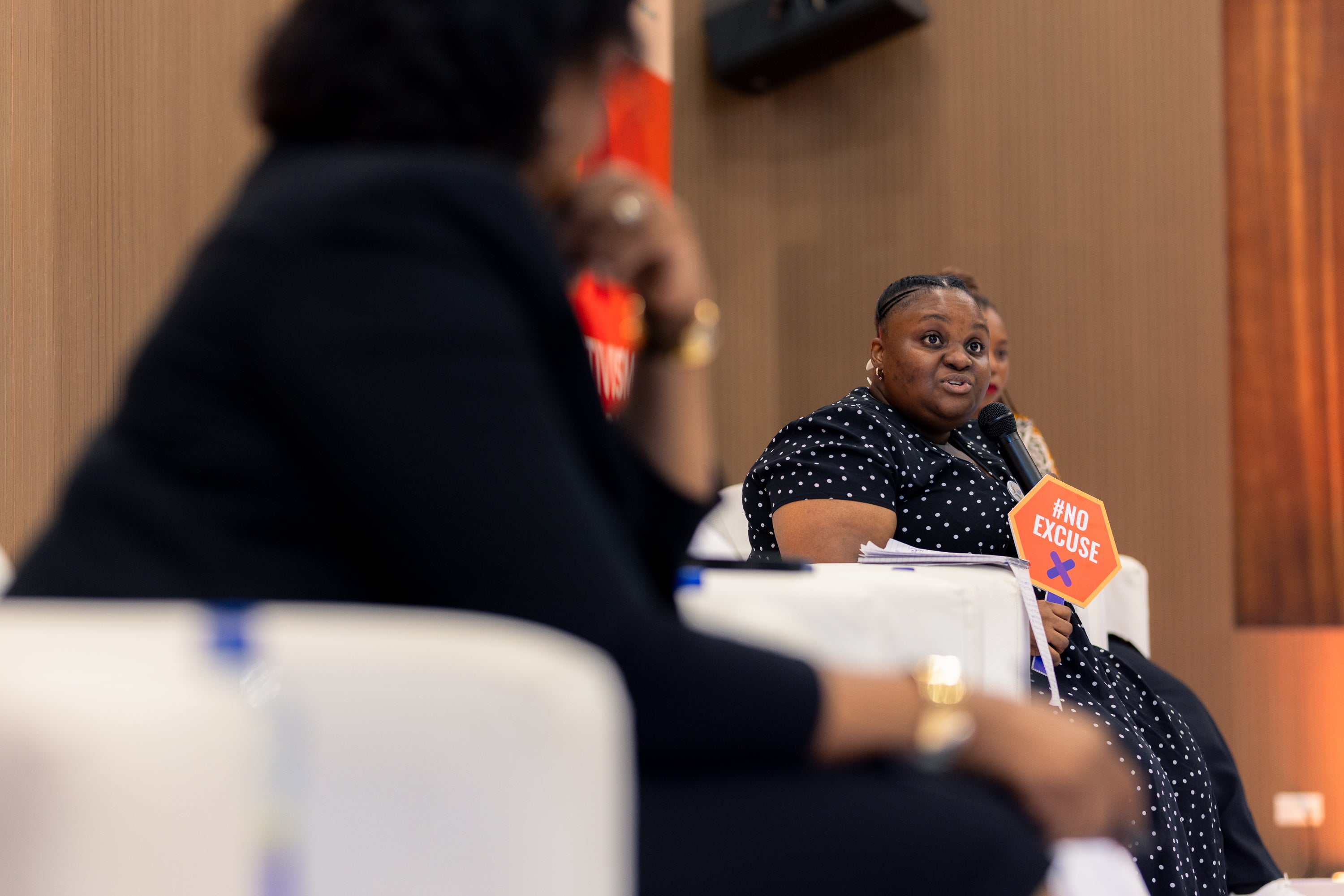
The United Nations System in Tanzania, under the coordination of UN Women, convened a high-level dialogue in Dar es Salaam titled "Realizing the Promise of 2030: Accelerating Action to End Gender-Based Violence."
The event, graced by the Deputy Permanent Secretary for the Ministry of Community Development, Gender, Women and Special Groups, Mr. Amon Mpanju, brought together over 150 participants, including government representatives, UN officials, development partners, civil society leaders, youth activists, and artists, to reaffirm commitments from the Beijing Declaration and Agenda 2030 and accelerate efforts to eliminate gender-based violence (GBV).
Opening the event, UN Resident Coordinator Susan Ngongi-Namondo said that the 16 Days of Activism presents an opportunity for all stakeholders to come together, rally around national policies and plans such as the National Plan of Action to End Violence Against Women and Children (NPA-VAWC), and call for bold, collective action: “Ending gender-based violence requires more than policies and plans—it demands the commitment of every individual and institution. Through initiatives like the NPA-VAWC, we can create a Tanzania where all women and girls live free from violence and discrimination, fulfilling their potential in safety and dignity.”
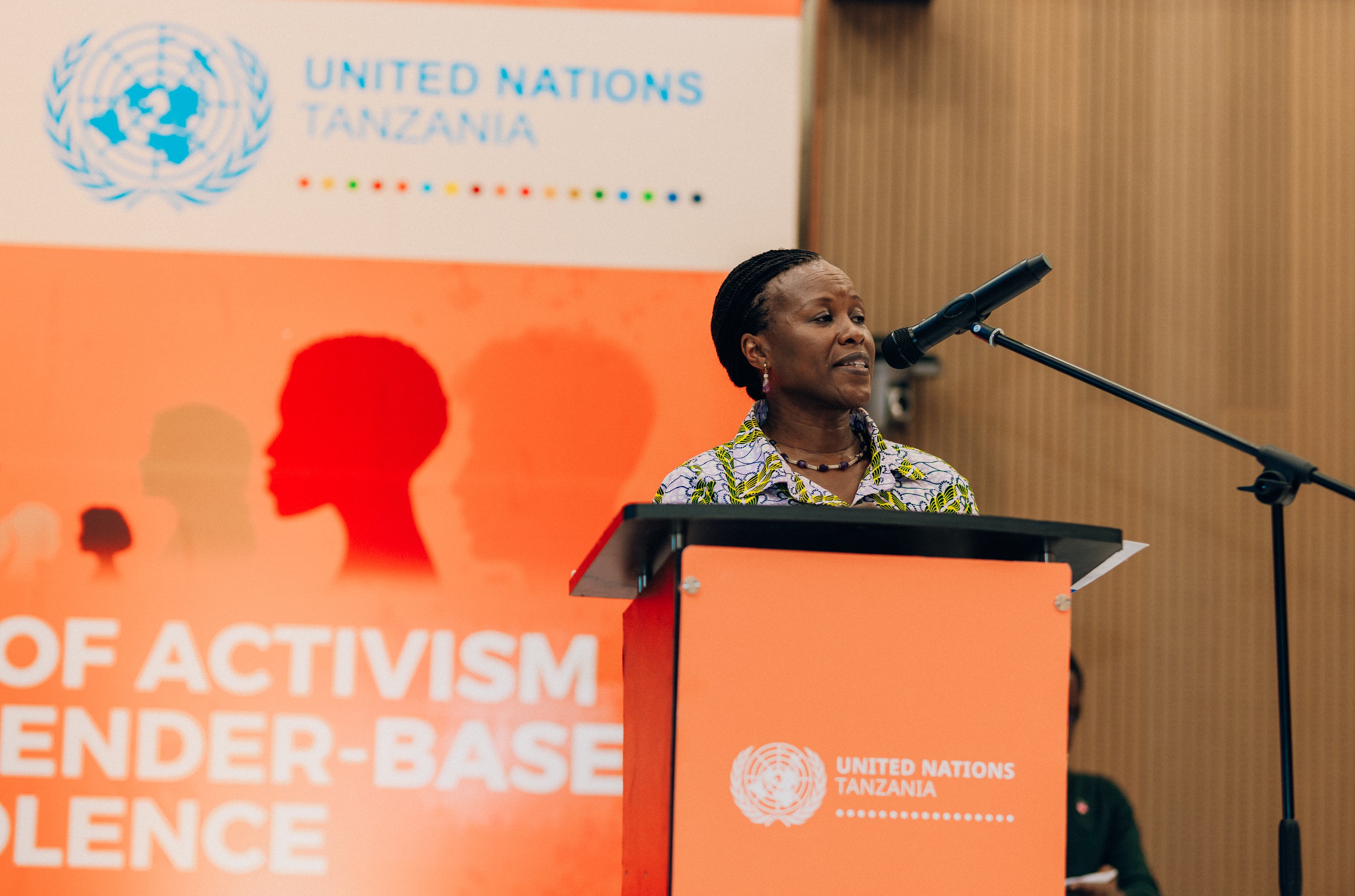
In Tanzania, one in three women and girls still experience physical, sexual, and other forms of gender-based violence. Abuse and harmful practices against women and girls persist, with over 2 million girls having experienced female genital mutilation (FGM), 23% of girls married before the age of 18.
Additionally, previous reports indicated a significant prevalence of sextortion, affecting over 20% of individuals in academic institutions and workplaces , and with women and girls increasingly engaging in digital spaces, technology-facilitated violence is also on the rise worldwide with between 16% and 58% of women experiencing online gender-based violence .
Deputy Permanent Secretary for the Ministry of Community Development, Gender, Women, and Special Groups, Amon Mpanju, highlighted the government’s progress and ongoing resolve to address these challenges: “Through robust policies and grassroots accountability, we remain steadfast in our commitment to ending violence against women and children. The NPA-VAWC II reflects our determination to significantly reduce GBV by 2030.”
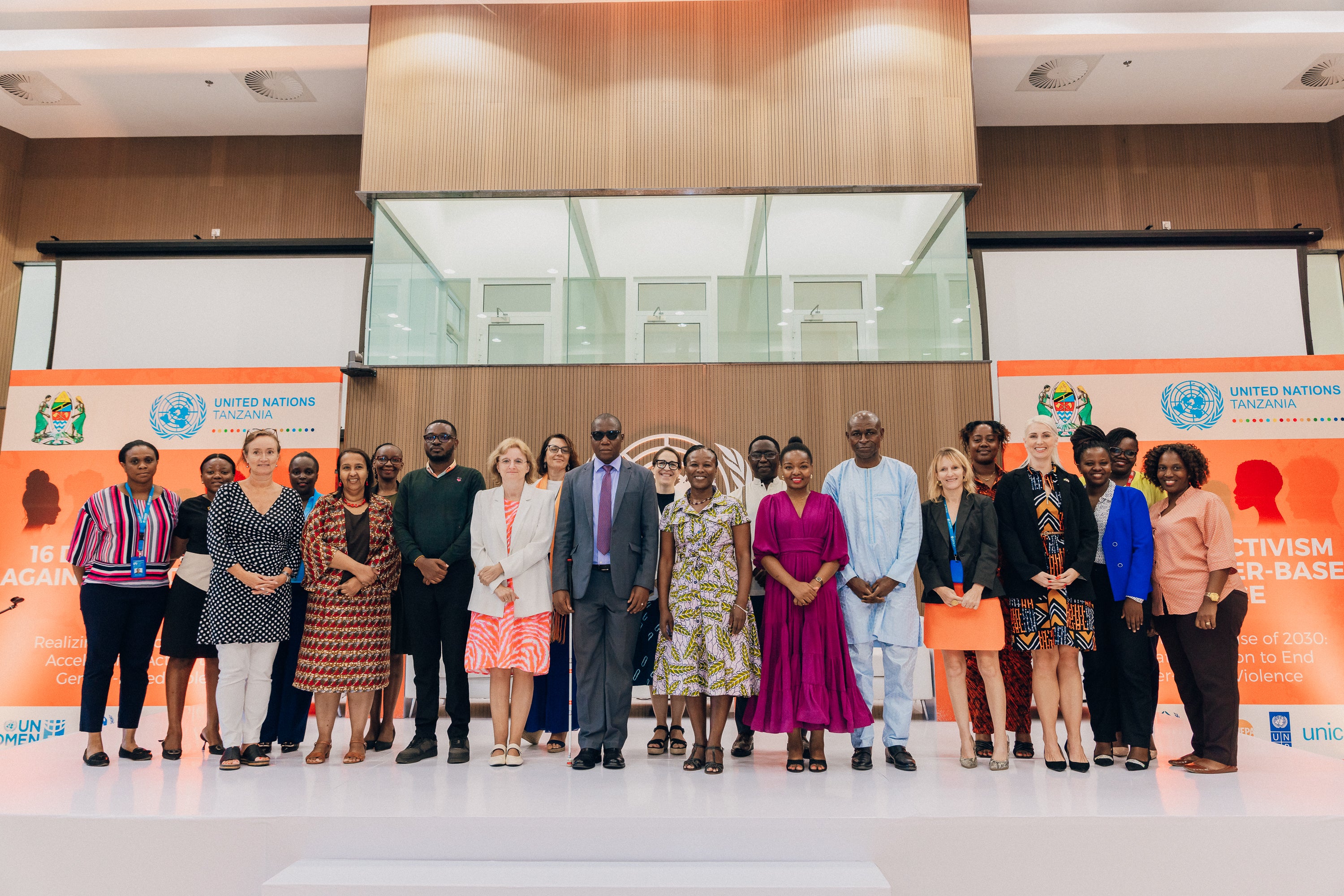
He further emphasized the importance of collaboration, starting within our homes, neighborhoods, and communities, to promote respect, equality, and zero tolerance for gender-based violence. "To eradicate acts of violence, community participation is essential at all levels. While we have strong policies and laws, ending gender-based violence requires robust systems that begin at the family level," he stated.
Rebeca Gyumi, Executive Director of Msichana Initiative, highlighted the need to address discriminatory social norms and practices: “We need to question oppressive norms and values, build radical collectives from the community level, and redefine social norms in order to create transformative change. And for young people, our challenge remains the fight for freedom—freedom to decide on our bodies, our futures, and our income.”
On his part, EVAW Programme Analyst, Godlizan Bakari, emphasized the vital role of men as critical allies and the importance of youth in using their voices to advance efforts to address gender-based violence. He highlighted the need for strengthened partnerships and community-driven solutions to create a safer and more equitable future for all.
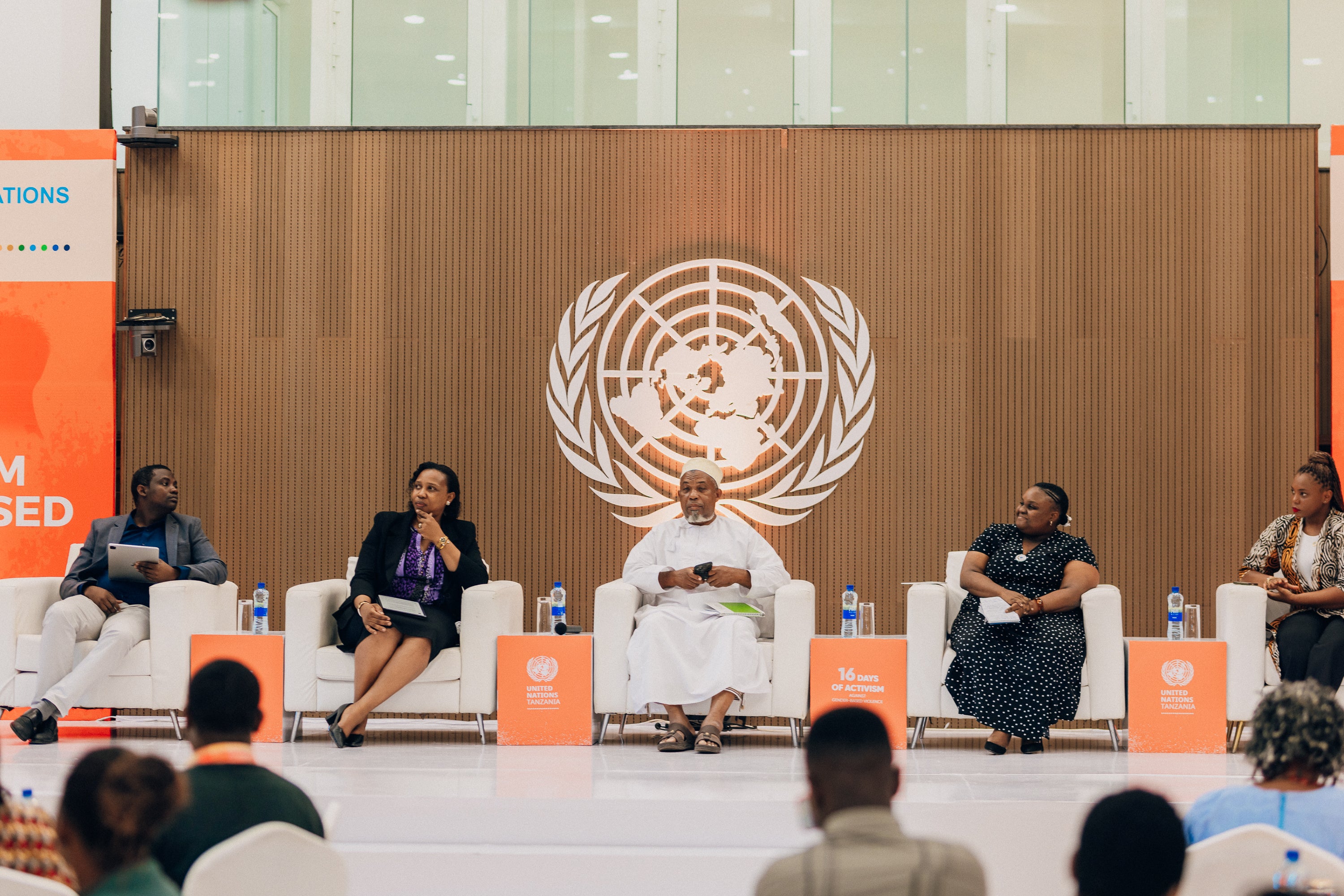
The dialogue also featured a panel discussion, “Change Requires Everyone: Harnessing Collective Action to Scale Up Efforts to End GBV,” which underscored the critical role of diverse stakeholders—including faith-based institutions, traditional leaders, youth, and artists—in addressing GBV and harmful practices. Panelists, including the National NPA-VAWC Coordinator, Mr. Alex Shayo; High Court Judge and member of the Tanzania Women Judges Association, Hon. Dr. Theodora Mwenegoha; Ms. Florah Ndaba, Head of Programme Activism and Movement Building at TGNP; and artist and disability activist, Ms. Lilian Munuo, shared insights and strategies on accelerating action to address GBV and ensuring the effective implementation of Tanzania’s second-phase National Plan of Action to End Violence Against Women and Children (NPA-VAWC), emphasizing the importance of mobilizing resources and fostering community-driven solutions.
On the sidelines of the event, the "Shupavu" Art Exhibit highlighted the transformative power of artivism in addressing gender-based violence. Twelve Tanzanian artists showcased compelling works—ranging from paintings to mixed media—that conveyed stories of resilience, empowerment, and the urgent need for systemic change.
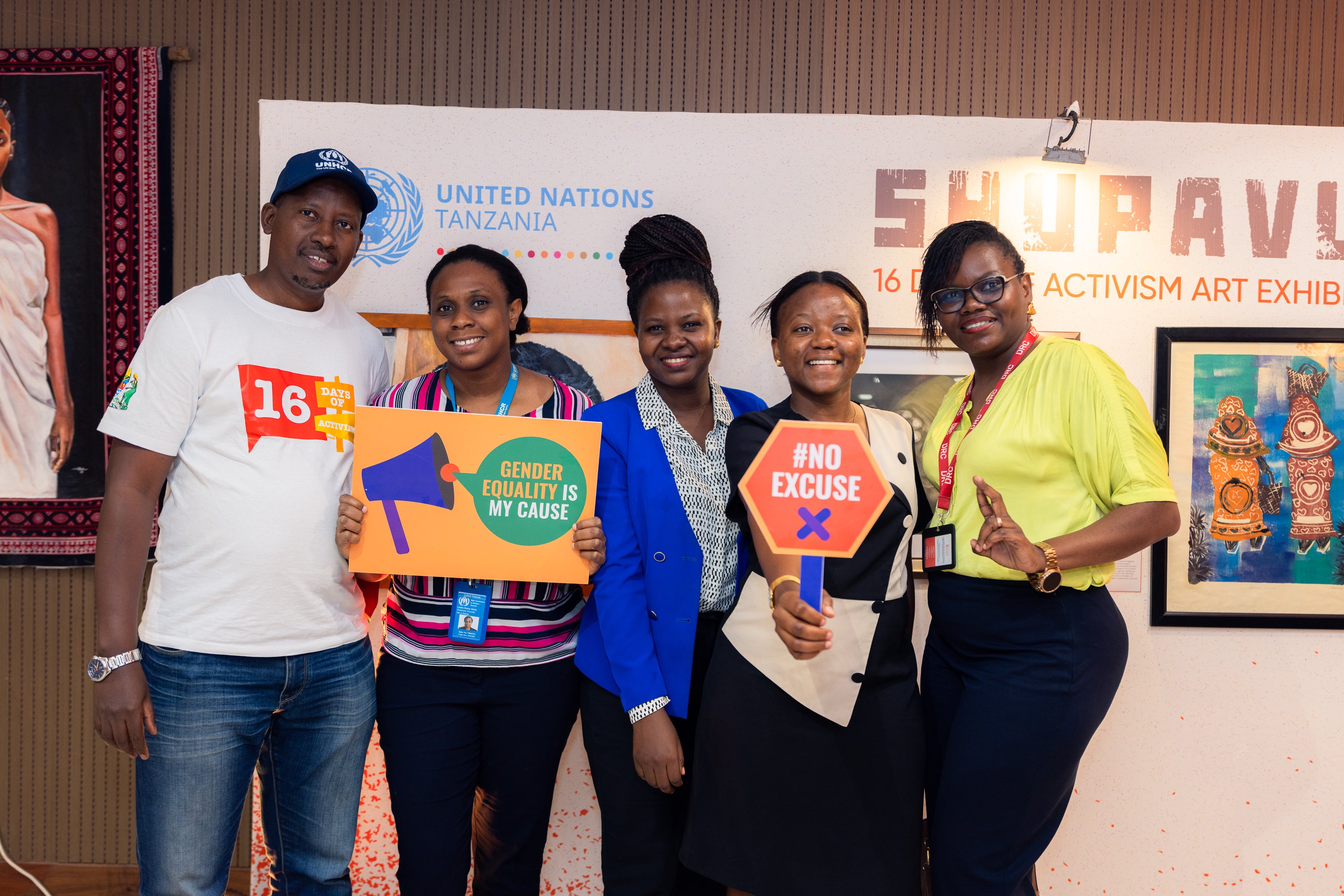
The dialogue concluded with a call for increased investment, stronger accountability, and innovative approaches to eliminate gender-based violence, reaffirming the commitment to achieving national and global targets.
"We are committed to accelerating action to ensure that the promise of 2030—a world free from violence against women and girls—is not just a vision, but a reality," said Amb. Christine Grau, European Union Ambassador to Tanzania.